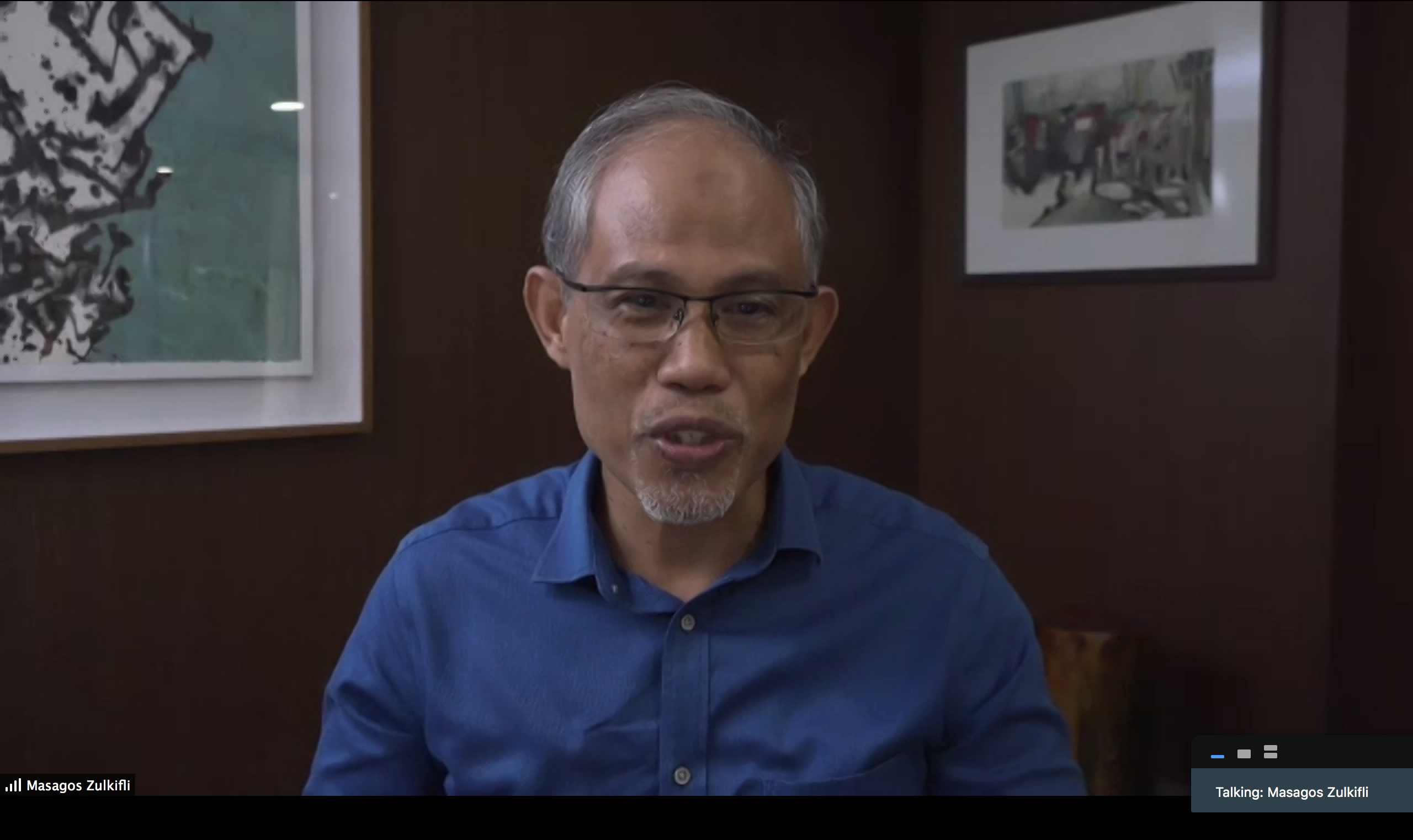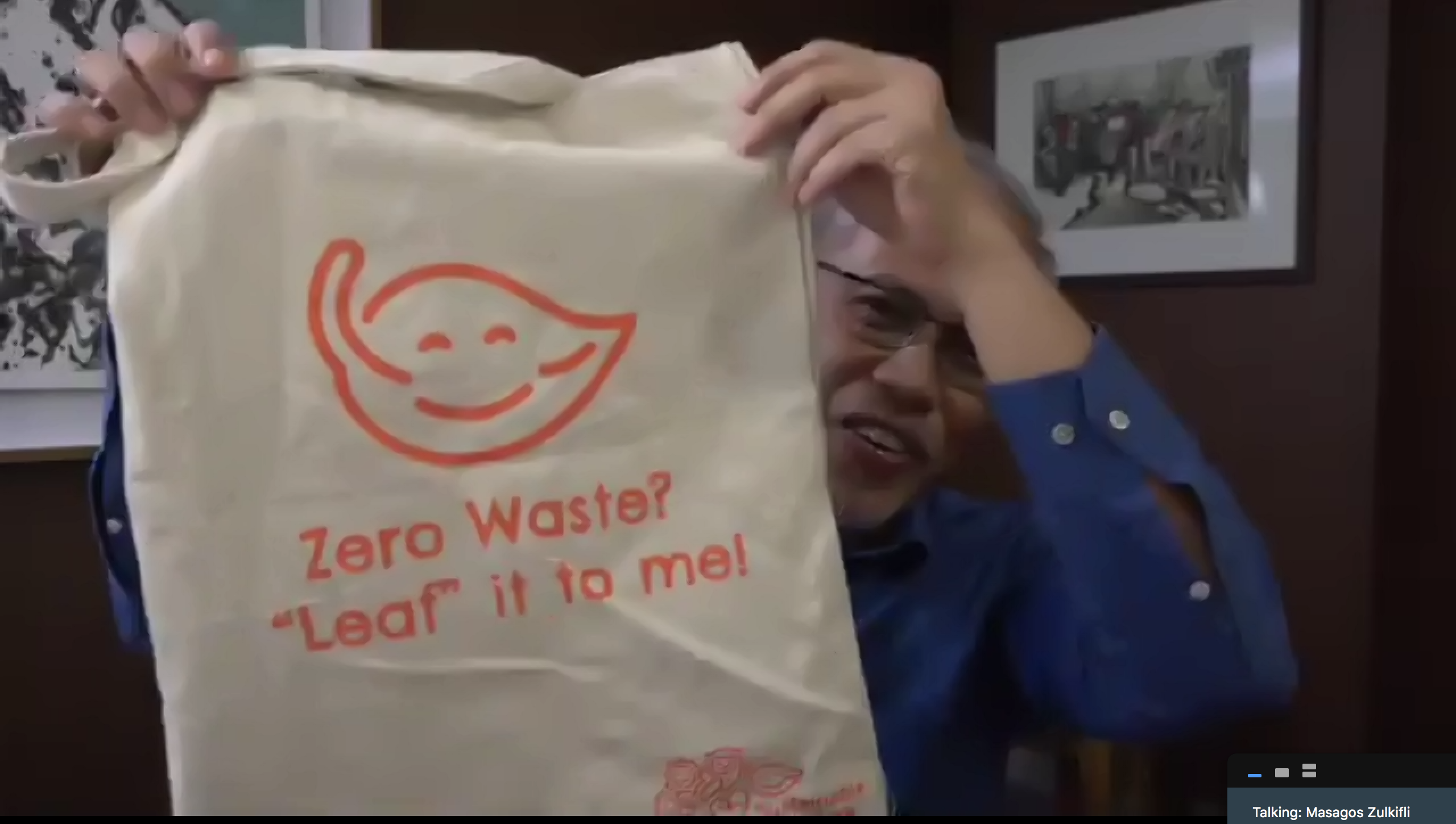"Not enough. We must do more."
This is what the Minister of Environment and Water Resources (MEWR) Masagos Zulkifli has most often heard from the environment community.
And five years into the job as Singapore's Environment Minister, Masagos appreciates people who care and want to effect change push the boundaries.
But the "converted" can also help to influence and educate the rest of Singapore to lead a more sustainable lifestyle in light of climate change.
He added:
"And that's good. That's good. But we also want them to infect this attitude to more people and not just people who are enthused with such issues. You know, a lot of people are aware of [environmental] issues that we may face but I'm not sure until people believe it, it's almost like a religion, I don't know whether we can sustain it if they don't believe it. So we want them to infect this [eco-consciousness]... to become part of their lives."
Not just about engineering solutions, but also to bring more people on board
Over a virtual Zoom interview with Mothership on June 19 afternoon, Masagos shared that when he first took on the role of the environment minister five years ago, he was actually really happy.
The former engineer thought a ministry that focuses on finding engineering and science-based solutions for environmental problems would be a good fit.
The first time he addressed his colleagues at MEWR, he said: “I’m happy to join you in the awesome ministry, AWEsome means Air, Water, and Earth. We are the stewards of these very important elements that make life livable for our country.”

But he soon realised that the many things the ministry has to do include getting people on board to solve environmental problems and to protect Singapore from climate change.
“So that has been the last five years of work, not just moving to better engineering solutions but also to [solutions] where we do things together and we also co-create solutions together.”
This ranges from ordinary Singaporeans and volunteers to scientists whom he got to learn more about how Singapore will not be spared from the impacts of climate change.
"I have always believed that climate change is bad for us. But what and why is also important. I got involved with the scientific community, and they educated me on why it matters to Singapore to the extent that today, we know almost definitely that there is one aspect of climate change that will be a threat to Singapore, and that’s sea level rise."
Covid-19 shows the importance to act early and fast on climate change
Besides sea level rise, food security will become an imminent issue as a result of climate change.
The Covid-19 pandemic has shown that Singapore needs to work on our food supply resilience.
Borders can close and export countries will prioritise their own needs during trying periods which will put Singapore at risk.
This prompted MEWR to accelerate its "30 by 30" plan for Singapore to ramp up on its own food production on commonly consumed foods, such as leafy vegetables, eggs and fish.
While it is not going to be an easy task, Masagos is also certain that Singapore can overcome our limitations and eventually emerge more resilient in the post-Covid-19 world."We are putting S$30 million for people to chip in ideas to double our capacity for vegetables, and fish and eggs. And I think we can achieve that for some in six months or the others maybe within two years. So that is something we want to do now and not wait. So yeah, so there are things that Covid-19 forces us to do things faster."
"In Singapore, we lack water, energy, and land. But we have to grow food to meet 30 per cent of our nutritional needs, in a sustainable manner, using only 1 per cent of our land. That’s an engineering challenge that I love. And it can be done!"
Transiting into a sustainable future economy
Besides the food sector, there will be a transformation in transport, waste, and other sectors too, as Singapore embarks on its roadmap to a more sustainable future.
For example, Singapore aims to electrify buses completely by 2040.
There are also efforts to turn trash into useful materials again, such as NEWSand and NEWOil, to implement carbon tax and carbon trading systems, as well as to look into hydrogen and carbon capture as alternate sources of energy.
"We have to bet on technologies, we have to bet on the ability to trade carbon. We need to put a global plan in place so that all countries, including Singapore, put our best foot forward and achieve this together. And then finally, how to get Singaporeans to be part of the solution. And that has to do with how we consume energy, how we treat waste, what transport we take to go to work, how do we consume resources and all those things so that it becomes part of who we are as a nation.
Masagos added:
I would say this... we are not climate sceptics. We are not tree huggers either. So we are a very pragmatic country looking at how we solve a problem and make that problem and turn it into an opportunity and solve the problem. Rather than get angry at the problem."
 Screenshot of Zoom video call showing Masagos showing one of the reusable bags he carries with him.
Screenshot of Zoom video call showing Masagos showing one of the reusable bags he carries with him.
At least 55,000 jobs will be created as Singapore goes green
These developments seem to present a more sustainable future and new job opportunities as well.
Masagos estimated that there will be at least 55,000 new jobs or upgraded jobs created in the food, water and environment sectors in the next 10 years. This excludes more potential supporting jobs created in the downstream industries.
Some of these jobs include maintaining the standards of the food and of the environment, understanding bacterial growth and genetics better in labs, as well as mechanical process work to understand how much nutrients are going in and out of the fish tank, just to name a few.
"So it is not farming in the traditional sense, it involves understanding of processes and computing and control systems," Masagos said.
Masagos added that these jobs will appeal to people who are passionate about the environment, as well as those who have experience in the science and technology industry.
The latter group will have transferable skill sets but would require to be retrained.
He added:
"Within the next year, we're going to create 4,000 new and upgraded jobs. However, the labour force needs to be retrained to take up these jobs because they will entail a different way of doing things and some of our [workers] are not used to this."
Aside from job opportunities, there will also be new small-medium businesses sprouting in these sectors. Masagos said:
"The other thing that is interesting is having new SMEs that are supported to adopt new technology, enhance productivity, and improve management. They are not only catering to local demand, but they are also exporting to countries like Brunei, and the Middle East, for example."
Concerns over future economy raised by environment community
These plans to mitigate or adapt to climate change are probably not new to the people consciously involved with the environment.
However, the concerns remain if the government is really committed to becoming more sustainable, especially towards the Emerging Stronger Taskforce under the Future Economy Council.
The Future Economy Council drives the growth and transformation of the Singapore economy in the future and the taskforce oversees the longer term response to the structural shifts in the economy, led by Minister for Social and Family Development, Desmond Lee.
Lee is also the Second Minister for National Development.
On this issue, Masagos said that he has confidence that Lee will take sustainability into account.
"I'm quite sure sustainability is in the back of his mind without being in your face," Masasgos said.
As the second minister at MND, Lee has been actively engaging nature lovers who are equally concerned about the environment.
Lee also recently launched the "Gardening with Edibles" initiative, which aims to improve food resilience by encouraging all Singaporeans to take a stab at growing vegetables at home.
Masagos quipped: "He sits beside me in the Cabinet, he is my best friend."
Top image via screenshot of Zoom video, Kuhlbarra, Mothership
If you like what you read, follow us on Facebook, Instagram, Twitter and Telegram to get the latest updates.
